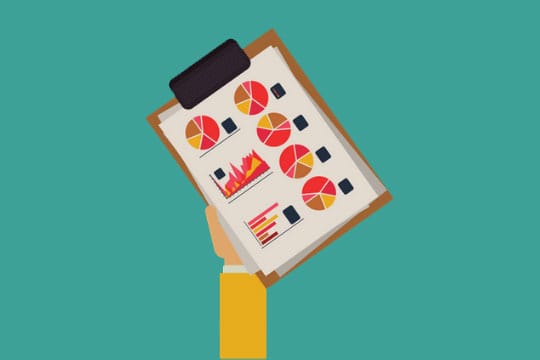Social media has evolved incredibly and come a long way from where it has started. Now, the platforms have changed, and the way people are using it has also changed. Therefore, the way of measuring social media results should also need to be changed. Isn’t it?
If we look at the recent changes in the most popular social media platform, Instagram, they are testing to remove the likes count on the posts. Only the one who posted will come to know how many people have liked the posts and who all are they.
However, the other two acclaimed platforms Twitter and LinkedIn are in no mood to follow this suit. This shows that success in every social media platform does not depend upon any single metric.
Though the “private like” model of Instagram will still provide numbers to gauge the performance of the posts. But, just looking at the engagement metrics to measure social media results is technically an inappropriate approach.
How social media results can be measured?

There are 2 ways in which social media can be measured, through campaign focused metrics and ongoing analytics.
The campaign focused metrics will help you understand the effectiveness of your marketing campaigns in social media platforms; this can vary from campaign to campaign.
On the other hand, ongoing analytics helps you to keep up with the discussions about your company or brand. To effectively measure social media results, you need to involve both current and campaign-specific measurements.
So are you ready to change your approach? Here are some tips that you keep in mind while measuring the impact of social media on your business.
Recommended for you: SEO Benefits of Having Strong Social Media Presence for Businesses.
1. Determine your goals
 Social media goals generally fall into the broader categories. So before you directly jump into measuring your tweets, engagement on Facebook or Instagram posts, first think about your goals. Ask questions to yourself. What are you trying to achieve through each platform? Are they relevant to those goals?
Social media goals generally fall into the broader categories. So before you directly jump into measuring your tweets, engagement on Facebook or Instagram posts, first think about your goals. Ask questions to yourself. What are you trying to achieve through each platform? Are they relevant to those goals?
Well, the potential of social media is not hidden from anyone. Still, remind yourself that social media is capable of serving a variety of purposes ranging from answering customers queries to broadcasting new information or news.
Also, put yourself in your customer’s shoes; think about what your customers would do with the content you share on multiple channels. What you want them to do, like, comment, share, read, or make purchases?
2. Set KPIs
 Key Performance Indicators are measurable values that a company uses to measure against their results. It shows how effectively an organization is attaining its key goals.
Key Performance Indicators are measurable values that a company uses to measure against their results. It shows how effectively an organization is attaining its key goals.
Though KPIs can be based on metrics, qualitative indicators can also be included as well, for example, the sentiment and quality of the content. The KPI will be different for different social media channels; it majorly depends on the goals you have set for each one of them.
For example, if your aim is to raise awareness about your brand, then you might need to expand your posts reach or focus more on increasing your followers count on your social media profile.
3. Measure
 Find resources that collect certain metrics that you have listed and want to work on. In some cases, social media networks provide some form of analytics themselves. In other instances, you may need to use some efficient third party software that provides you detailed reports about the performance of your posts.
Find resources that collect certain metrics that you have listed and want to work on. In some cases, social media networks provide some form of analytics themselves. In other instances, you may need to use some efficient third party software that provides you detailed reports about the performance of your posts.
If you are not aware of the tools, then you can also quickly search on the web, and you will get numerous options. By using such tools, you can easily automate all your manual tasks, and get a more comprehensive report to measure the result of your efforts.
4. Review
 Measuring the performance of your posts on social media is not just enough, you also need to review those metrics from time to time to figure out if you are missing anything, or is there something which is not required or unnecessary?
Measuring the performance of your posts on social media is not just enough, you also need to review those metrics from time to time to figure out if you are missing anything, or is there something which is not required or unnecessary?
Remember, if you are using social media as a medium to market your products or promote your company, you need to understand how your content is helping you to achieve your business goals.
So, find out what you can change, make improvements accordingly, and then test a few more times. Check back with the original goals you set, and make sure that your new metrics help you achieve those goals.
5. Defend your investment
 Any business effort is a waste if you don’t get the expected returns. Similarly, social media marketing is also an investment if we talk in business terms. So, if the results you are getting out of it are not worth your time and money then, how can you justify your marketing budget.
Any business effort is a waste if you don’t get the expected returns. Similarly, social media marketing is also an investment if we talk in business terms. So, if the results you are getting out of it are not worth your time and money then, how can you justify your marketing budget.
Calculating your Return on Investment (ROI) for your social media marketing campaign will give you an idea of how much they are contributing to your business goals and what is working and what is not.
If you see that your social media campaigns are very well received by your audience, then you can eliminate what is not working and also optimize the ones that can be repeated to avoid future flops and gain success.
This way, you can constantly improve your social media strategy by making new efforts.
How to evaluate success in different platforms?

Like it is already mentioned above, the metrics on which success can be calculated are different for different social media platforms. So, let’s check out how to measure success in some of the well-known platforms.
You may like: How Social Listening Best Practices Can Improve Your Conversion Rates?
 To evaluate how each Facebook post performs, you can compare the engagement in the posts and get to know ones that are performing incredibly well.
To evaluate how each Facebook post performs, you can compare the engagement in the posts and get to know ones that are performing incredibly well.
Let’s assume that your business goal is to soar your brand awareness, and to achieve that, you have posted content related to your brand on Facebook.
So, for determining the popularity of that post, you can check the number of comments, likes, and shares on it. If your posts have greater engagement, then you can assume that your brand awareness is increasing.
You can also use ad intelligence tools to customize your Facebook ads with the best parameters. It will not only help you make your ads better but also provides you great assistance in evaluating the traffic.
 If you are using Instagram as a preferred network for promoting your brand, then you might already have an Instagram Business Account. It lets you monitor the performance of the videos and photos you share on the platform.
If you are using Instagram as a preferred network for promoting your brand, then you might already have an Instagram Business Account. It lets you monitor the performance of the videos and photos you share on the platform.
You can assess the demographics and evaluate the top posts to determine the audience. To analyze more deeply, you can also check the likes, views, and engagement on each post.
If your company goes well with the visual content on social media, then you can also make use of Instagram’s native analytics to explore the best combination of content, image, and hashtags.
The algorithm feed of Instagram is so powerful that the content gets up when there is a higher chance of it being relevant. So, when you track your posts constantly, it will help you serve your audience with the best content.
 Twitter is also a very popular platform that allows you to check metrics and rapidly scale up your content to the top. You can keep a check on the performance of your content for 30 days, as it helps you gain a better understanding of how to track your posts and what a typical engagement rate seems to be.
Twitter is also a very popular platform that allows you to check metrics and rapidly scale up your content to the top. You can keep a check on the performance of your content for 30 days, as it helps you gain a better understanding of how to track your posts and what a typical engagement rate seems to be.
Whether you’re looking for engagement, want to expand your posts reach, or track conversion rates of your ads, always choose the best metrics for your operations. Remember, simply growing your audience won’t create any impact unless and until you are driving engagement or getting conversions from your content. Also do not hesitate to use your best content again.
 LinkedIn provides the best platform for recruitment and creating brand awareness. By posting on this platform, you can expand your network and gain more followers.
LinkedIn provides the best platform for recruitment and creating brand awareness. By posting on this platform, you can expand your network and gain more followers.
To gauge the performance of your posts on LinkedIn, you can make use of LinkedIn Analytics. It not only provides you the necessary information about your audience but also lets you know the engagement and impressions of your posts.
You may also like: How to Put the Zing Back into Your Social Media Campaign?
Takeaways

Measuring social media success is a very important part of any social media strategy. If you don’t know how your posts or marketing campaigns are performing, then you won’t be able to improve your audience experience with your brand.
Therefore, stick to your measurement program, find the best tools that will provide you the desired results, and find ways to get your customers involved in your social media activities.
This article is written by Sumit Ghosh. Sumit is a renowned performance marketer, user acquisition expert, and a product fanatic from Bangalore. He is a prominent speaker in masterminds and events in the performance marketing space. Sumit is the Founder of Socioboard, which owns products like PowerAdSpy, Socinator, EmpMonitor, DominatorHouse, and mobile apps in the social media automation space which have millions of users. Follow him: Twitter | Facebook | Instagram.
 This article is written by Sumit Ghosh. Sumit is a renowned performance marketer, user acquisition expert, and a product fanatic from Bangalore. He is a prominent speaker in masterminds and events in the performance marketing space. Sumit is the Founder of
This article is written by Sumit Ghosh. Sumit is a renowned performance marketer, user acquisition expert, and a product fanatic from Bangalore. He is a prominent speaker in masterminds and events in the performance marketing space. Sumit is the Founder of 




